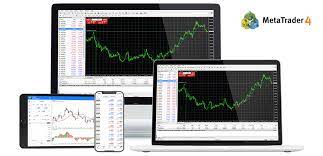Contract for Difference (CFD) trading is a popular method of speculating on the price movements of various financial markets without owning the underlying asset. With its potential for high rewards, CFD trading attracts investors seeking flexible trading options. However, along with its benefits come significant risks that traders must understand before getting started.
What are CFDs?
CFDs are financial derivatives that enable traders to speculate on the price changes of assets like stocks, commodities, indices, and cryptocurrencies. The trader agrees to exchange the difference in the asset’s price from the time the contract is opened to when it is closed. This method allows traders to profit from both rising and falling markets.
For instance, if you believe the price of gold will increase, you can buy (go long) a CFD. Alternatively, if you think it will decrease, you can sell (go short) a CFD. Unlike traditional investing, cfd trading does not require ownership of the underlying asset, making entry and exit more streamlined.
The Rewards of CFD Trading
Leverage Amplifies Gains
Leverage in CFD trading allows traders to control a larger position with a smaller initial investment. For example, a 10x leverage means you can trade a $10,000 position with only $1,000 of capital. This feature can significantly boost returns when trades move in your favor.
Diverse Market Access
CFDs provide access to a wide variety of global markets. From foreign exchange and commodities to indices and cryptocurrencies, traders can find opportunities across sectors without the need for multiple accounts or platforms.
Flexibility to Trade Short or Long
CFDs allow traders to profit from both upward and downward price movements. This flexibility is particularly beneficial during volatile markets, where opportunities exist regardless of the market’s direction.
No Ownership Costs
Since CFDs don’t involve owning the underlying asset, traders avoid additional expenses like storage fees for commodities or brokerage fees for stock ownership.
The Risks of CFD Trading
High Risk of Leverage
While leverage can multiply profits, it can also magnify losses. A small market movement against your position can result in substantial losses, potentially exceeding your initial investment.
Market Volatility
CFDs often involve volatile markets where prices can fluctuate rapidly. Sudden market movements may lead to unexpected losses that are difficult to manage, especially for inexperienced traders.
Overnight Costs
Holding CFD positions overnight incurs financing costs, which can lower profitability over time. This makes CFDs less suitable for long-term investments.
Lack of Ownership Rights
Since CFD trading involves contracts, traders do not gain rights associated with owning the asset, such as dividends or voting rights for stocks.
